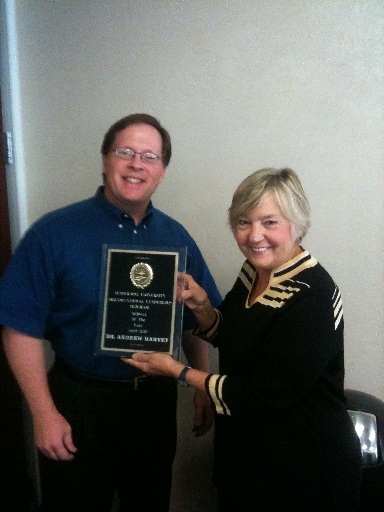Last Monday, the eighth annual Citizens’ Academy came to a close with a graduation ceremony honoring this year’s participants. Members of the FBI’s New York Office and academy graduates made an unwavering commitment to continue to build on the strong partnerships already developed with alumni of the program. Members of this year’s Citizens’ Academy included civic leaders, religious leaders, doctors, judges, members of the media, financial managers, professors, community organizers, and many others. The class was featured numerous times in the press, including the New York Daily News, NBC New York, and many other outlets.
“Not in my wildest dreams did I believe this class would be so intense. It has provided a glimpse into the lives of the men and women of the FBI. I wish everyone could take this 10-week program to see what goes into protecting the city of New York and the American people,” said Duane Jackson, president of this year’s academy class and one of the street vendors who alerted the NYPD about the suspicious vehicle in Times Square on May 1, 2010.
Assistant Director in Charge Janice K. Fedarcyk was quoted as saying, “We had 43 incredible individuals participate in this year’s class, and it is my sincere hope that each and every one of them will continue to be involved as we grow this important partnership.”
The academy is designed to foster increased understanding and cooperation between members of the community and the FBI while developing strengthened relationships between the two groups. The graduates of Citizens' Academy enable the FBI to stay better attuned to the needs and issues of the community, are more willing to pick up the phone and call us with information to solve or prevent crimes, become ambassadors of the FBI who dispel myths and misunderstandings about the Bureau, and often go on to join alumni chapters that work directly with us on numerous public safety initiatives.
The goal is for alumni to leave with a far better understanding of the organization, what we do, and why we do it. It also provides a medium for dialogue on various issues, problems, and creates a system of partnership in times of crisis.
This year’s graduates heard from representatives from all six divisions including: Counterterrorism, Counterintelligence, Intelligence, Special Operations, Criminal, and Administrative. They were provided a full day at the firing range in Fort Dix , New Jersey
The Citizens’ Academy was founded more than 15 years ago in Phoenix















